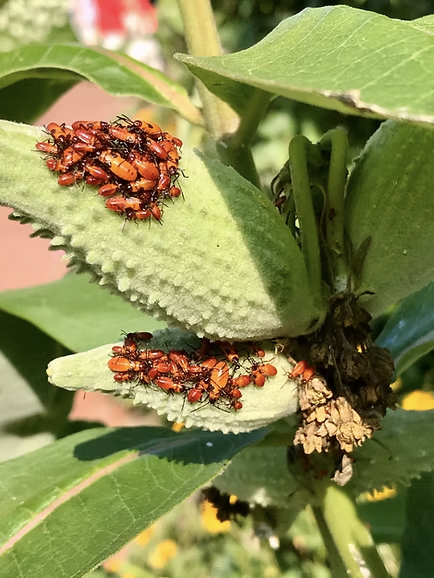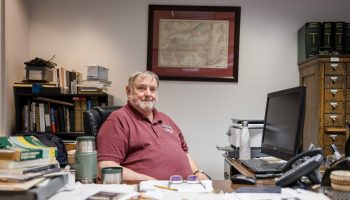
Emma Francois
Contributing Writer
It wasn’t until a high school biology class, equipped with a homemade butterfly net fashioned from a broom’s handle, that Judy Gallagher learned to love insects.
“I looked at them under a magnifying glass,” she said. “They were all so different and colorful and interesting shapes. I was blown away by how many different species I found.”
Gallagher will deliver her lecture “Amazing Insects” at 12:15 p.m. today in Smith Wilkes Hall for the Bird, Tree & Garden Club. She will also lead an Insect Walk for kids and adults at 4:15 p.m. today, meeting at the Athenaeum Lawn on South Lake.
Gallagher is a Certified Master Naturalist based in Prince William County, Virginia, where she is also a charter member of the Prince William Wildflower Society and a board member of the Northern Virginia Bird Alliance. She spends her days searching for critters, conducting natural resource and wildlife surveys and documenting insects and spiders with her award-winning macrophotography. Her wildlife photos — careful, zoomed-in studies of praying mantises, long-horned bees, red-legged buprestis beetles and so much more — from around the world, taken across Mozambique to Galapagos, are all openly accessible to learn and take inspiration from: 25,071 photos and counting.
She hopes to encourage people to think of insects as vast, varied, beautiful and critical to the environment’s health, rather than as “one big entity to exterminate.”
Currently, there are one million described species of insects. However, scientists estimate there are, conservatively, closer to 5–10 million insect species on the planet, meaning they account for an estimated 90% of all life on Earth.
“We haven’t described even half of the world’s species,” Gallagher said. “We make land-use decisions all the time, and we don’t know who the insects are. We don’t care who the insects are, and we’re destroying things without even knowing what they do.”
While insects are her current and most passionate obsession (with dragonflies having a particularly special place in her heart thanks to the “way they fly and their inquisitiveness”), she appreciates all wildlife, big and small.
“It’s all related,” she said. “If we get rid of one part of nature, we’re messing with the rest of it, as well.”




